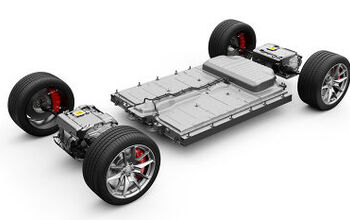FTC Launches “Combating Auto Retail Scams” Rule

The Federal Trade Commission (FTC) has announced the finalization of the new Combating Auto Retail Scams (CARS) rule designed to prevent auto dealers from utilizing bait-and-switch tactics and hidden junk fees. While these are technically illegal already, CARS is supposed to give the FTC more leeway in determining what constitutes fraud and serve as a warning to dealers that may be crossing the line.
New rules have been accompanied by some business guidance entitled FTC CARS Rule: Combating Auto Retail Scams – A Dealers Guide to encourage dealers to adhere closely to the letter of the law. This paper is supposed to explain “long-standing principles of truth in advertising and fair dealing apply when people go car shopping.”
The FTC says these efforts are designed to “add truth and transparency to the car buying and leasing process by making it clear that certain deceptive or unfair practices are illegal,” basically making CARS a promise to consumers that the government still understands how business is supposed to be conducted.
From the FTC:
The CARS Rule is a big win for consumers, who can expect that established standards of truth and transparency that apply in other consumer transactions will also apply when they’re looking to buy or lease a car. What’s more, now they can point to specific legal provisions that will help protect them in the process. If consumers see that a dealer is complying with the CARS Rule, it adds a measure of confidence. But if they spot a dealer who flouts those protections, consumers may take their business elsewhere.
The CARS Rule also is a big win for honest industry members who already implement the Rule’s principles of truth and transparency at their dealerships. Most salespeople can recount a story of losing a sale to a cross-town competitor who used questionable tactics to lure away a prospective customer. That shouldn’t happen. Dealers who work hard to treat customers fairly shouldn’t have to go head-to-head against competitors who resort to deception to close a deal. The CARS Rule establishes clear rules of the road that apply to all car dealers – meaning that consumers will be able to comparison shop based on truthful claims about price, financing, and service. When all dealers are held to the same clear standards, dealers who meet (or exceed) consumers’ expectations have a fair shot at winning the sale, gaining customers’ loyalty, and earning a word-of-mouth reputation as the dealer to do business with. Another benefit is that the CARS Rule accomplishes these goals without requiring consumers or dealers to fill out more paperwork.
And here I thought dealers were already supposed to be held to the same standards.
The new rules (if we can call them that) can be broken down into four parts. CARS makes it illegal to “misrepresent certain topics” that might affect a person’s buying or leasing decision. This includes things like price, financing options, and fees.
Dealers are also required to disclose their asking price in full. Exceptions can be made for select government incentives (e.g. electric vehicle subsidies). This also prohibits retailers from breaking things down to monthly payment without explaining how much the vehicle will cost in total. If add-ons do come up, the dealer likewise has to be clear that they aren’t required.
Said add-ons also have to offer some tangible benefit. Customers are not allowed to be charged extra for features that do nothing. Though we imagine this one will be tricky to navigate due to the vague language and the fact that modern automobiles are already loaded up with pointless junk.
The last item pertains to consent. Dealers are required to get express, informed permission before charging customers for literally anything. This one is designed to avoid hidden fees. It’s straightforward enough. But we imagine extra sketchy dealers might circumvent this one with extra paperwork.
For those curious about the finer details of the above provisions, check out the FTC’s comprehensive outline of the CARS rule. However, don’t expect it to automatically save you from dealer shenanigans. The above behaviors are already supposed to be illegal. It seems that the FTC has simply caught wind of how aggressive dealers have gotten in recent years and is hoping to remind them to play fair while offering upset consumers peace of mind.
The CARS Rule will be formally implemented on July 30, 2024. It’s designed to provide protection for all consumers. However, the language pertains exclusively to “covered motor vehicle dealers,” which would include state-licensed automotive retailers. This likely creates a gray area for motorcycles, watercraft, and recreational vehicles. Don’t assume they’ll be privy to the same protections.
[Image: Gretchen Gunda Enger/Shutterstock]
Become a TTAC insider. Get the latest news, features, TTAC takes, and everything else that gets to the truth about cars first by subscribing to our newsletter.

A staunch consumer advocate tracking industry trends and regulation. Before joining TTAC, Matt spent a decade working for marketing and research firms based in NYC. Clients included several of the world’s largest automakers, global tire brands, and aftermarket part suppliers. Dissatisfied with the corporate world and resentful of having to wear suits everyday, he pivoted to writing about cars. Since then, that man has become an ardent supporter of the right-to-repair movement, been interviewed on the auto industry by national radio broadcasts, driven more rental cars than anyone ever should, participated in amateur rallying events, and received the requisite minimum training as sanctioned by the SCCA. Handy with a wrench, Matt grew up surrounded by Detroit auto workers and managed to get a pizza delivery job before he was legally eligible. He later found himself driving box trucks through Manhattan, guaranteeing future sympathy for actual truckers. He continues to conduct research pertaining to the automotive sector as an independent contractor and has since moved back to his native Michigan, closer to where the cars are born. A contrarian, Matt claims to prefer understeer — stating that front and all-wheel drive vehicles cater best to his driving style.
More by Matt Posky
Latest Car Reviews
Read moreLatest Product Reviews
Read moreRecent Comments
- Peter Buying an EV from Toyota is like buying a Bible from Donald Trump. Don’t be surprised if some very important parts are left out.
- Sheila I have a 2016 Kia Sorento that just threw a rod out of the engine case. Filed a claim for new engine and was denied…..due to a loop hole that was included in the Class Action Engine Settlement so Hyundai and Kia would be able to deny a large percentage of cars with prematurely failed engines. It’s called the KSDS Improvement Campaign. Ever hear of such a thing? It’s not even a Recall, although they know these engines are very dangerous. As unknowing consumers load themselves and kids in them everyday. Are their any new Class Action Lawsuits that anyone knows of?
- Alan Well, it will take 30 years to fix Nissan up after the Renault Alliance reduced Nissan to a paltry mess.I think Nissan will eventually improve.
- Alan This will be overpriced for what it offers.I think the "Western" auto manufacturers rip off the consumer with the Thai and Chinese made vehicles.A Chinese made Model 3 in Australia is over $70k AUD(for 1995 $45k USD) which is far more expensive than a similar Chinesium EV of equal or better quality and loaded with goodies.Chinese pickups are $20k to $30k cheaper than Thai built pickups from Ford and the Japanese brands. Who's ripping who off?
- Alan Years ago Jack Baruth held a "competition" for a piece from the B&B on the oddest pickup story (or something like that). I think 5 people were awarded the prizes.I never received mine, something about being in Australia. If TTAC is global how do you offer prizes to those overseas or are we omitted on the sly from competing?In the end I lost significant respect for Baruth.


































Comments
Join the conversation
The ultimate power is with the customer/buyer and that power is a simple word, "No". Dealer tells me they have a mandatory fee, "No". Dealer tells me Lojack is required on each vehicle, they cannot remove it, "No". Dealer tells me they add a required equipment package to each vehicle, "No". I tell the dealer they are required to show me line items details as part of quoting me a price. They don't do it, "No". The word "No" works wonders. Any given dealer needs you as a customer more than you need them to sell you a car. Make them work to earn your sale, never behave like you have to work to convince them to sell you a car. Say No and say it often.
There is a scary trend today of providing the customer with all the documents on a memory stick [thumb drive].
The law should require all original paper documents. I got a LoJack charge on a car without seeing it in the papers I signed. I got the fee back and they will remove the device.
But I do not remember seeing that at signing and didn't see it until I closely reviewed the 18 pages of documents on the memory stick.